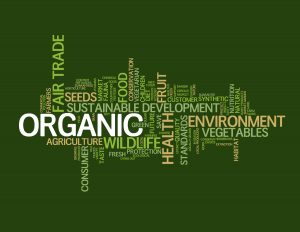 A few weeks ago while discussing Coast Protein, our client for the second client assessment, one of my classmates had brought up a question that perplexed me – is consuming organic foods actually more sustainable than their non-organic counterparts? If organic foods avoid using synthetic chemicals that lead to higher yields of produce, doesn’t organic food then require more resources and inputs to achieve the same quantity? As a student who spent the past four years in a Faculty focused on food systems, why was I unable to answer what seemed like such a simple question?
A few weeks ago while discussing Coast Protein, our client for the second client assessment, one of my classmates had brought up a question that perplexed me – is consuming organic foods actually more sustainable than their non-organic counterparts? If organic foods avoid using synthetic chemicals that lead to higher yields of produce, doesn’t organic food then require more resources and inputs to achieve the same quantity? As a student who spent the past four years in a Faculty focused on food systems, why was I unable to answer what seemed like such a simple question?
The following are requirements for organic certification:
- Using seeds that have not been genetically modified
- Not using chemical products that are synthetic
- Operational requirements (i.e. physical separation from foods that have been been organically certified, detailed records, regular inspections etc.).
That is it. With this, it appears that most benefits associated with growing organic foods pertain to health benefits rather than those that are environmental. Eating organic means eating foods mostly void of of synthetic chemical inputs (i.e. pesticides) that have questionable impacts on human health in the long run. There are some environmental benefits – avoidance of synthetic chemicals means there is less rick of poisoning the soils in which foods are grown and the underground water.
That’s when it hit me – there is a pretty significant difference between foods that are sustainable and those that are organic. While not discrediting the parts of organic food production that ease the burden on our planet, equating organic with sustainable would be doing a disservice to the latter. Jennifer Chait from The Balance talks about the following differences between the two:
- Sustainable aims to be small – it uses more developed methods of food production (i.e. vertical farming) that organic is not mandated to
- Sustainable equates water efficiency, with water consumption not being regulated under organic certification
- Sustainable is also energy efficient – it usually means consuming foods that are locally grown and have not been shipped over half way across the world
So much of the marketing that I’ve seen since I was even aware of the concept of consuming organic foods has been focused on the environmental benefits of doing so. With this, far more education is needed surrounding the various food options we have to consume. Why is it that most of the conversations I have had, both in academia and out, have failed to discriminate between organic and sustainable foods?
Link: https://www.thebalance.com/difference-organic-sustainable-food-2538316
robertograssi
April 10, 2017 — 5:03 pm
I have had this doubt for the longest time as well. It was only a couple of weeks ago that I finally decided to look further into it and actually do some research as well. I completely agree with you, organic and sustainable foods should not be considered equals. I’ve discovered that there are organic pesticides which can be more harmful to one’s health than synthetic pesticides. I believe that organic has become another label that has lost its value and is at times used in an attempt to fool consumers to purchase a product that is more expensive and has higher margins. What I found in my research was that the best way to avoid buying foods with organic labels that are not sustainable was to buy local. Although it may be more expensive, local farmers and food providers are more likely to be willing to explain the entire process behind the food they sell, including what pesticides were used.